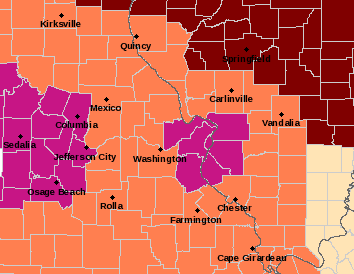Killian Walsh | Legacy Staff Reporter
 Lindsey Lohan, Demi Lovato and Nichole Ritchey all have one thing in common: they have had an eating disorder. It was reported last year that approximately 24 million Americans and 70 million individuals worldwide have an eating disorder. That is just under 40 percent of the entire population. Since that number is so large, people with eating disorders could be anywhere.
Lindsey Lohan, Demi Lovato and Nichole Ritchey all have one thing in common: they have had an eating disorder. It was reported last year that approximately 24 million Americans and 70 million individuals worldwide have an eating disorder. That is just under 40 percent of the entire population. Since that number is so large, people with eating disorders could be anywhere.
Feb. 24 through March 2 is National Eating Disorder Awareness (NEDA) Week. The theme this year is “I Had No Idea.” According to the website, “This year the NEDA is stressing the need to address eating disorder misconceptions – as many individuals, families, and communities are not aware of the often devastating mental and physical consequences – and highlights available resources for treatment and support.”
NEDA Week is a collective effort of primary volunteers, including eating disorder professionals, healthcare providers, students, educators, social workers, and individuals committed to raising awareness of the dangers surrounding eating disorders and the need for early intervention and treatment. Across the country, over 100 events take place during NEDA week including walks, information sessions, and screenings.
NEDA asks that everyone does just one thing to help raise awareness including putting up posters, distributing pamphlets or even making a minor post on a social media website. The goal is to educate people on the growing problem that is eating disorders.
There are many types of eating disorders including the three main types, bulimia nervosa, anorexia nervosa and binge eating disorder.
Bulimia nervosa is characterized by binge eating and purging, or consuming a large amount of food in a short amount of time followed by purging, taking laxatives, diuretics, or stimulant, and/or excessive exercise.
Anorexia nervosa is characterized by food restriction, inappropriate eating habits or rituals, obsession with having a thin figure and an irrational fear of weight gain, as well as a distorted body self-perception. It typically involves excessive weight loss.
Binge Eating Disorder is associated with frequently eating large amounts of food in one sitting until uncomfortably full. The person is unable to stop eating or control how much they eat.
All disorders are dangerous and can cause serious health issues, even death. A review of nearly 50 years of research confirms that anorexia nervosa has the highest mortality rate of any psychiatric disorder. Eating disorders frequently coexist with other illnesses such as depression, substance abuse or anxiety disorders.
Although eating disorders are diagnosed and are medical conditions, some insurance companies do not cover treatment for these disorders. NEDA wants to also raise awareness and funds to help support those people who cannot afford required treatment.
Last year, more than $69,000 were raised in the first two weeks following the campaign’s February launch.
Eating disorders frequently coexist with other illnesses such as depression, substance abuse or anxiety disorders.








